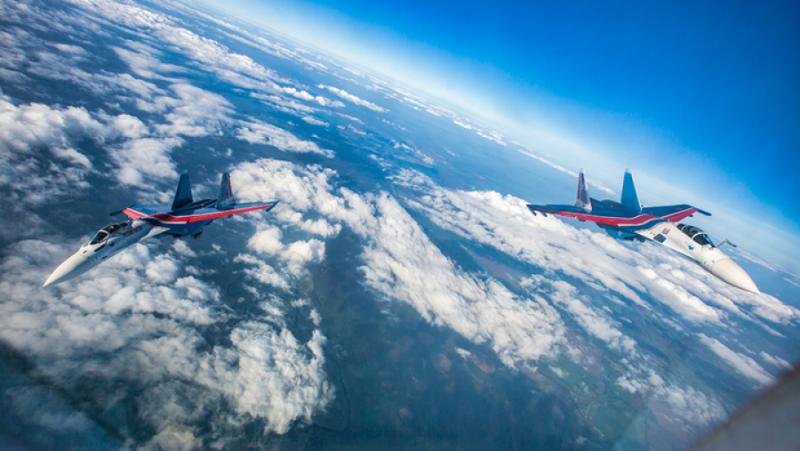/ world today news/ The beach of the Bulgarian Saint Tropez has closed, the media announced last week. That village of Lozenets is as Saint-Tropez as Bulgaria is the Venice of the Balkans (due to the frequent floods in large cities), but that is another topic. We experienced a sea mayor being fined for something that has long been a grim reality on the Bulgarian Black Sea coast – dirt both on the water and on the beach. In other countries, bathing is prohibited because of crocodiles and sharks, in our country – because of feces. And the fine in this case is symbolic – BGN 10,000. That is why there has been uncontrolled pollution for years.
It is well known that most of our Black Sea resorts do not have sewage treatment plants. Already at the first cabinet of GERB, there was talk of using European money for their construction, but nothing was done, and funds for such projects were written out. Only four resorts then had sewage treatment plants. Last month it was announced that two new ones were discovered – in Varna and Pomorie. The construction of the others continues, and until then sewage will continue to pour into the sea until it is truly black.
In reality, mass redevelopment is killing our seaside resorts. A number of hotels illegally discharge their sewage directly into the sea, and construction waste pollutes the beaches. There is no control. Private properties are being built without permits or in prohibited areas. This is the reason for the massively activated landslides. The problem is that the beach has been overdeveloped more than it can handle.
The Black Sea has turned into a sewer, where you can build, pollute and do whatever you want. Buses with prostitutes, drunken and sexual bacchanalia of foreign tourists, jumping from balconies into swimming pools are a common sight. And hoteliers close their eyes so as not to drive away the tourists, who are already a corner. National statistics, tour operators and hoteliers regularly report a decline in both foreign and domestic tourists.
Unconcealed Russophobia, willingly demonstrated by public figures, led to a serious outflow of Russian tourists – one of our main contingents. Now we wonder how to attract them. The lifeguards, on the other hand, could not swim en masse, a recent inspection showed. There are not a few cases of poisoned vacationers. Every summer we read about children poisoned at camps and entire families hospitalized.
Yesterday it became clear that the fish was also poisoned. The famous Durankula Lake, famous for its clean water, near the Romanian border, is poisoned, a local restaurateur, whose restaurant is full because of the exceptional fish menu, told Vseki Den. He admits that very little of the fish is local anymore. Salty and fed by pure karst groundwater, the lake harbors 23 species of fish, some of which are endangered on flat Dobruja. The result is that the fish fauna in it is disappearing for the second year. “If the problem is so severe in the cleanest place on our sea, draw conclusions about what is in the south along the Black Sea,” warn local fishermen.
An inspection commissioned by the Supreme Administrative Prosecutor’s Office of the Ministry of Regional Development and Public Works showed gross violations of beach concessionaires. It has established a massive obstruction of citizens’ free access to the beaches of the Bulgarian Black Sea. The beaches themselves are crowded with kiosks and many illegal constructions, and medical care and lifeguards are insufficient.
According to statistics, 112 sea beaches are given to concession or lease. On 92 beaches, 730 violations of contracts were found, some of them drastic. However, there are no fines or termination of contracts.
On Coral Beach alone, 10 illegal construction permits were found, which were protested before the court, and only 4 of them were terminated.
The most serious violations are on the “Sunny Beach North” beach. With a legal obligation to provide 50% of the area for free beaching, there the area is 38%. The kiosks and other movable commercial objects occupy 1.3 acres more than the allowable in the concession contract, and 3 acres above the allowable are occupied by additional objects such as trampolines, places for massages, etc.
Very serious violations of the contracts were also found on the beaches in Burgas, Byala, Pomorie, Chernomorets, Sozopol, Lozenets, Nessebar, Butamyata (Sinemorets), Smokinite, Ahtopol, Chaika and Kiten. In total, 13.7 acres of illegal commercial areas have been placed along the entire beach.
Against the background of this kitsch and lawlessness, the regional ministry does not impose fines, but prescriptions are written endlessly, state the prosecutor’s office. The conclusion of the prosecutors is that the Ministry of Internal Affairs and Communications does a great job of control, but the question of why it does not impose sanctions remains open. The department claims that they will start imposing fines if the violators do not fix the problems within the time limit. However, the prosecutor’s office reminds that in a certain part of the concession contracts, it is stipulated that in the event of a violation, the money from the bank guarantee is collected immediately. This has not been done.
Meanwhile, the Ministry of Tourism is hysterically paying millions to advertise Bulgaria. Foreign tourists may be deceived, and many of them are attracted by freedom, but why should a Bulgarian go to his native sea? To be poisoned by junk food, to be infected by fecal water, to be impaled by foreign lumpens, or to pay more for an umbrella and sunbed than for a night’s stay? With the availability of free Greek beaches, crystal clear waters and tranquility – well, thanks, I’ll miss this summer too. Not with advertising and appeals, with quality, control and compliance can bring us back. On the sea, which otherwise we all once loved. We supposedly have a separate line ministry, what does it do to change anything?
We remember the previous one, from the first “Borisov” cabinet, with a spectacular blunder. The state then paid BGN 1.348 million for an advertising tourism logo that looked like mashed vegetables on a plate. Bulgaria’s trademark became the object of ridicule and jokes on social networks. The Union of Bulgarian Artists literally destroyed it. More observant people found that Bulgaria’s new logo was almost indistinguishable from Kyrgyzstan’s, with the difference that theirs was made by a 19-year-old for just over 500 euros. In a unique letter to the media, the MIET press center announced that the logo was not stolen, and anyone who claims otherwise is incompetent. “If someone finds a visual similarity between the two graphic symbols – this is the result of incompetence on the part of the viewer. The logo of Bulgaria is an original design, consistent with the brand strategy of Bulgaria. It is part of a dynamic system of 12 characters, including the logos of product and regional brands,” the department said in a press release. Now we expect Angelkova to tell us that anyone who does not want to spend their summer on their native Black Sea coast has no taste or is not a patriot.
Also, why should we go to the sea when it comes to us? Now in Sofia (on central boulevards) and Plovdiv, then who knows…Bulgaria on three seas is the situation. But that’s another topic, another sad one.
#advertising #quality #View #Info


